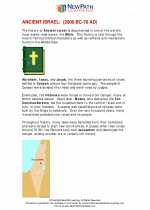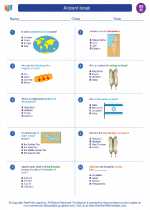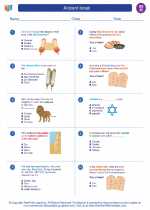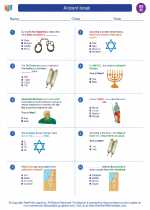Eid al-Fitr
Eid al-Fitr, also known as the "Festival of Breaking the Fast", is an important religious holiday celebrated by Muslims worldwide. It marks the end of Ramadan, the Islamic holy month of fasting. The celebration of Eid al-Fitr includes special prayers, feasting, giving of gifts, and acts of charity.
History and Significance
Eid al-Fitr is a time of joy and thanksgiving for Muslims, as it commemorates the conclusion of a month-long period of fasting, self-discipline, and increased devotion to worship and prayer. The holiday also serves as a reminder of the importance of compassion, empathy, and helping those in need.
Celebrations and Traditions
On the day of Eid al-Fitr, Muslims gather for special communal prayers at mosques or open grounds. After the prayers, families and friends come together to enjoy festive meals, exchange gifts, and engage in acts of charity. It is also customary to dress in new or special attire for the occasion.
Study Guide
1. What is the significance of Eid al-Fitr in the Islamic calendar?
Eid al-Fitr marks the end of Ramadan, a month of fasting, prayer, and reflection for Muslims. It is a time for celebration and gratitude.
2. How do Muslims typically celebrate Eid al-Fitr?
During Eid al-Fitr, Muslims attend special prayers, gather with family and friends for feasts, exchange gifts, and participate in acts of charity.
3. What are some of the values and teachings associated with Eid al-Fitr?
Eid al-Fitr emphasizes the importance of compassion, empathy, self-discipline, and helping those in need. It encourages acts of generosity and kindness.
4. Why is Eid al-Fitr considered a significant holiday for Muslims?
Eid al-Fitr is significant as it symbolizes the completion of a period of spiritual growth, self-discipline, and devotion. It also promotes unity, community, and the spirit of sharing and giving.
[Eid Al-fitr] Related Worksheets and Study Guides:
.◂Social Studies Worksheets and Study Guides Eighth Grade. Ancient Israel

 Worksheet/Answer key
Worksheet/Answer key
 Worksheet/Answer key
Worksheet/Answer key
 Worksheet/Answer key
Worksheet/Answer key
